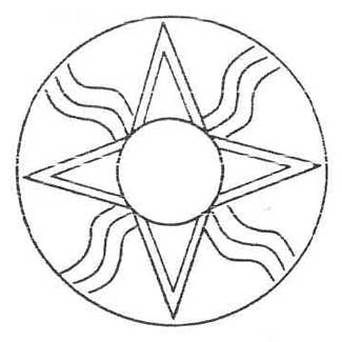Religion
The Sumerians were polytheistic, that is, they believed in many gods. There were a few gods that controlled pieces of the universe. For example, there was Anu who was the father of the gods and the god of the sky. Some gods were the opposite of each other, like Utu (the god of the sun) and Nanna (the god of the moon). Every city had its own patron or goddess. Within this city, there were divine idols connected with various jobs and professions. Along with this, every person had his or her own personal deity which protected the individual and stayed on his/her side against an angry god or goddess. Priests constantly made people feel like they were servants to the gods and that they were helpless, needy, and inferior. This strengthened the feel of need for religion.
Religion had a key role in government. Priests were of high status and enjoyed certain privileges that no one else was allowed. For example, they were the only ones who were permitted on the top of a ziggurat to talk to the gods. To Mesopotamians, that was a big deal. And because Mesopotamia was under a theocracy, the gods ruled the people, and the priests carried out the gods' orders. And the gods' words were law.

Symbol for Utu, the Sun God